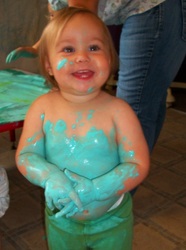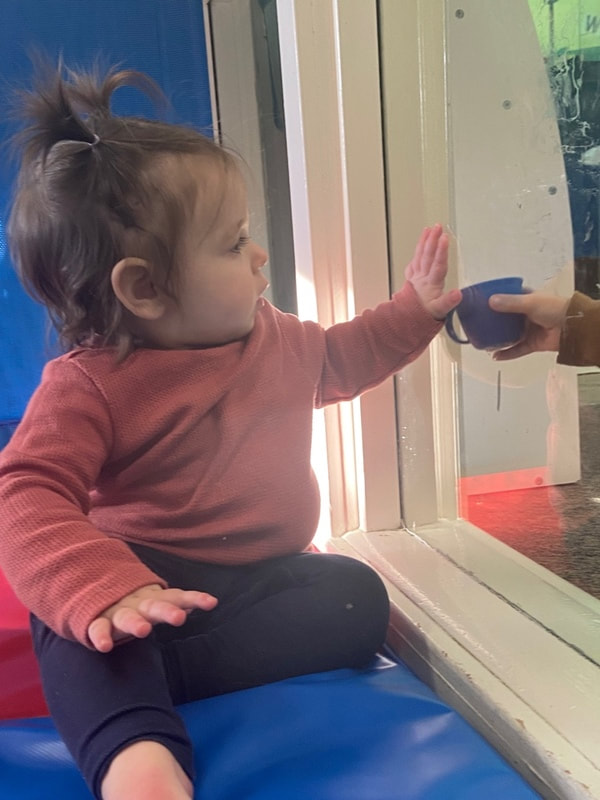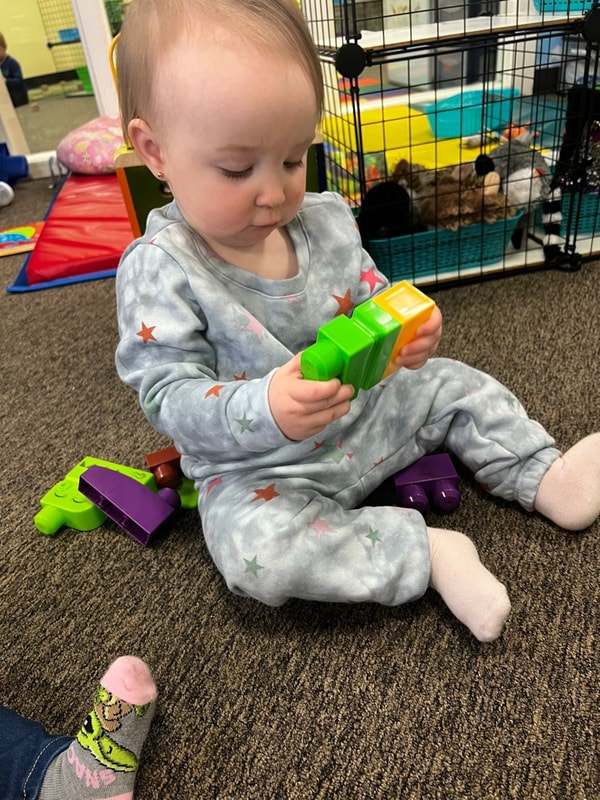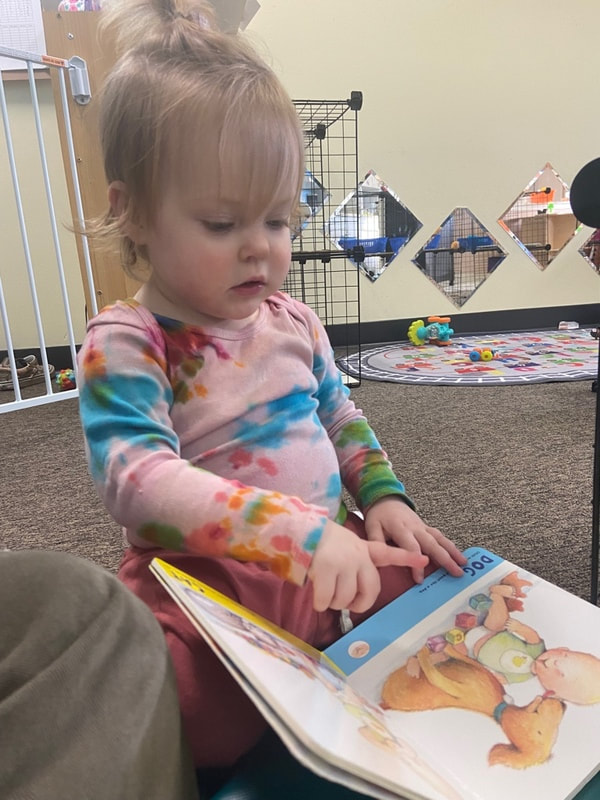Twelve- Eighteen Months (waddlers)
Welcome to the entertaining world of a one year old!

The toddler stage is very important in a child's life. It is the time between infancy and childhood when a child learns and grows in many ways. Everything that happens to the toddler is meaningful. With each stage or skill the child masters, a new stage begins. This growth is different for each child. Children have their own timetable. During the toddler stage, most children learn to walk, talk, solve problems, relate to others, and more. One major task for the toddler is to learn to be independent. That is why toddlers want to do things for themselves, have their own ideas about how things
should happen, and use "NO" many times each day. Toddlers bursting with energy and ideas need to explore their environment. We make sure that they can explore in an environment that is safe for them. They want to be independent, and yet, they are still very dependent.
Physical Development -They can scribble. They can stack blocks. They push and pull toys. A one year old learns how to throw. (Yes tantrums, but also objects!) Toddlers may eat less, but they tend to eat frequently throughout the day. They get better at feeding themselves, although spills should still be expected. Most walk without support by 14 months. Most walk backward and up steps by 22 months. They can drink from a cup with help.
Social and Emotional Development - Temper tantrums are common. They have difficulty sharing toys. They may be possessive. They want to do things independently. They cannot remember rules. They show increasing fears. They have rapid mood shifts. Their emotions are usually very intense but short-lived. Routines are very important. They enjoy playing by themselves or beside (not with) other children. They view themselves as the center of the world. They may continuously ask for their parents. They become increasingly more self-aware. They begin to express new emotions such as jealousy, affection, pride and shame.
Intellectual Development - Toddlers name familiar people and objects. Their attention span is short. They are curious. They use "NO" frequently. They point to objects that they want. They name body parts and familiar pictures. They imitate animal sounds. They use pronouns me and mine. They can hold a pencil and scribble. They combine two words to form a basic sentence. They point to objects that they want. They use objects for their intended purpose. They begin to include a second person in pretend play.
Our curriculum is developed to support all of these developmental stages through the interaction with teachers, sensory activities, group activities, outside time and so much more.
Teacher: Miss Alisha
should happen, and use "NO" many times each day. Toddlers bursting with energy and ideas need to explore their environment. We make sure that they can explore in an environment that is safe for them. They want to be independent, and yet, they are still very dependent.
Physical Development -They can scribble. They can stack blocks. They push and pull toys. A one year old learns how to throw. (Yes tantrums, but also objects!) Toddlers may eat less, but they tend to eat frequently throughout the day. They get better at feeding themselves, although spills should still be expected. Most walk without support by 14 months. Most walk backward and up steps by 22 months. They can drink from a cup with help.
Social and Emotional Development - Temper tantrums are common. They have difficulty sharing toys. They may be possessive. They want to do things independently. They cannot remember rules. They show increasing fears. They have rapid mood shifts. Their emotions are usually very intense but short-lived. Routines are very important. They enjoy playing by themselves or beside (not with) other children. They view themselves as the center of the world. They may continuously ask for their parents. They become increasingly more self-aware. They begin to express new emotions such as jealousy, affection, pride and shame.
Intellectual Development - Toddlers name familiar people and objects. Their attention span is short. They are curious. They use "NO" frequently. They point to objects that they want. They name body parts and familiar pictures. They imitate animal sounds. They use pronouns me and mine. They can hold a pencil and scribble. They combine two words to form a basic sentence. They point to objects that they want. They use objects for their intended purpose. They begin to include a second person in pretend play.
Our curriculum is developed to support all of these developmental stages through the interaction with teachers, sensory activities, group activities, outside time and so much more.
Teacher: Miss Alisha







